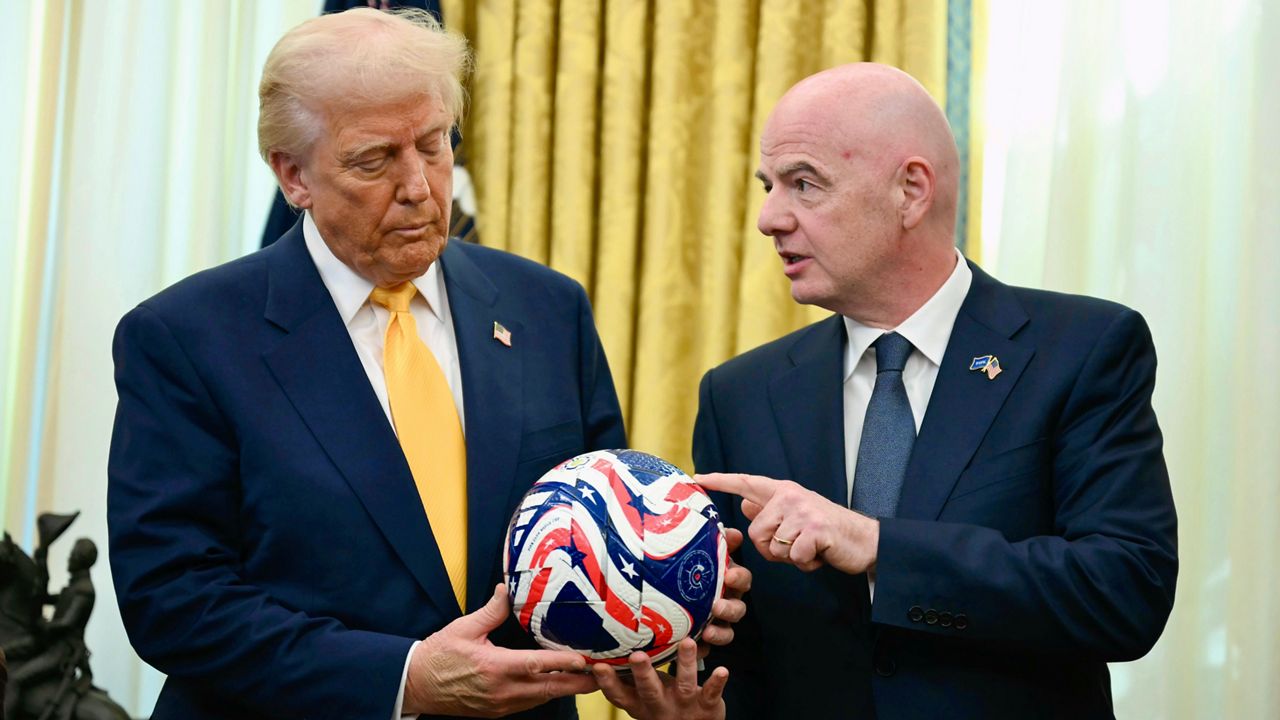

Key Takeaways:
- Donald Trump’s new import tariffs could delay or derail stadium redevelopment projects at Manchester United, Liverpool, and Chelsea.
- Wrexham’s US-driven commercial growth may slow due to economic uncertainty caused by tariffs impacting US consumer spending.
- American investment in English football remains attractive, but operational costs and strategic focus could shift in response to tariffs.
Economic Uncertainty Clouds Stadium Redevelopment Projects
Donald Trump’s recently announced tariffs on imports to the United States may have far-reaching consequences for English football, with club development plans potentially delayed or restructured. Among the projects under scrutiny is Manchester United’s proposed £2 billion stadium rebuild at Old Trafford, unveiled just last month. The 100,000-seater stadium project represents a long-term financial commitment, and the introduction of a 10 per cent tariff on all imports — with certain nations such as China and members of the EU facing even higher rates — has introduced a layer of economic unpredictability.
Professor Rob Wilson, a sports finance authority, warned that such financial headwinds could prompt US-based owners to reconsider capital-intensive ventures. “The prospect of US-based owners reconsidering stadium redevelopment projects in light of financial uncertainty, including tariffs and broader economic shifts, is certainly plausible,” Wilson told OLBG. “These are multi-million-pound investments with significant up-front costs.”
🚨🚨| BREAKING: The first official pictures of Manchester United’s new 100,000 seater stadium as the centre-piece of the regeneration of the Old Trafford area. pic.twitter.com/h605qlK5Z0
— centredevils. (@centredevils) March 11, 2025
American-Owned Clubs Could Reassess Financial Strategies
With high-profile clubs like Chelsea and Liverpool also owned by US investors, Professor Wilson believes that the climate of financial caution may alter approaches to long-term infrastructure improvements. “Should tariffs trigger economic slowdowns in the UK or globally, owners may defer such projects or modify their scale,” he noted. Clubs might instead prioritise immediate operational stability over long-term growth amid mounting uncertainty.
Despite their financial strength, English clubs remain cautious in an unpredictable economic environment. Wilson added, “The need to balance spending with revenue generation remains constant, especially during times of economic turbulence.” The economic ripple effects may not only influence the timeline of redevelopment initiatives but also reshape how clubs structure their finance models around capital outlay.
Wrexham’s US Expansion Facing Financial Headwinds
Wrexham AFC, owned by Hollywood actors Ryan Reynolds and Rob McElhenney, may also encounter obstacles in maintaining momentum in its financial growth stateside. Much of the club’s recent commercial expansion is tied to its growing popularity in the US, benefiting from its media exposure and high-profile ownership. This growth has translated into increased merchandise sales, sponsorships, and media interest across the Atlantic.
Yet, Professor Wilson warns that this reliance could prove problematic should US consumer sentiment weaken. “If the US economy were to experience sustained downturns, consumer sentiment toward discretionary spending, particularly in entertainment sectors such as football, could weaken,” he explained. While the club has cultivated a loyal, emotionally engaged US fan base, Wilson emphasised the importance of diversification: “The key for Wrexham is to expand beyond the US market and into Europe and other global markets.”
Tariffs Likely to Raise Operational Costs and Recalibrate Investment Strategy
Although tariffs specifically target imported goods, the indirect consequences for US-owned English clubs could be substantial. American stakeholders conducting cross-border operations may face elevated costs. “Tariffs raise the cost of goods imported from the UK, which could lead to increased operational costs for American stakeholders in English football,” said Wilson.
Still, he does not foresee a collapse in US investment. “While tariffs might affect short-term profits, the long-term nature and media rights potential of English football continue to make it an attractive proposition,” he noted. Investors may, however, adopt more strategic approaches — renegotiating sponsorship or media deals to maintain profitability despite higher costs.
Reflecting this shift, Wilson highlights a broader trend in American sports financing. “We are beginning to see a slowdown in football investment,” he remarked. “Other sports — such as netball, exemplified by the acquisition of the Birmingham Panthers by BCFC’s owners — are starting to attract more capital.”
Potential Impacted Clubs and Projects
| Club | Ownership | Project | Estimated Cost | Impact |
|---|---|---|---|---|
| Manchester United | US-based | New 100,000-seat stadium at Old Trafford | £2 billion | May delay/postpone due to upfront investment risks |
| Liverpool | US-based | Stadium redevelopment (ongoing) | N/A | Heightened caution on further expansion |
| Chelsea | US-based | Stadium redevelopment discussions | N/A | Likely reassessment or scale-back |
| Wrexham | US owners (Reynolds & McElhenney) | US-focused commercial growth | N/A | Exposure to US economic fluctuations |